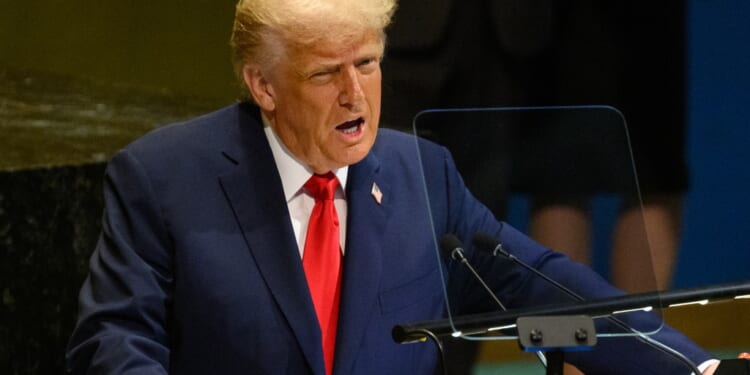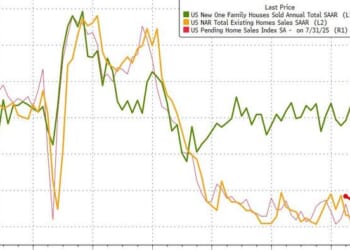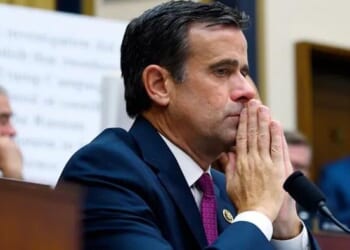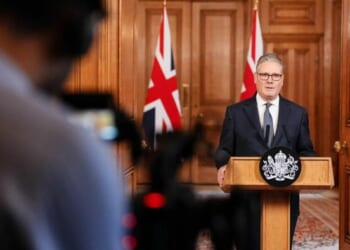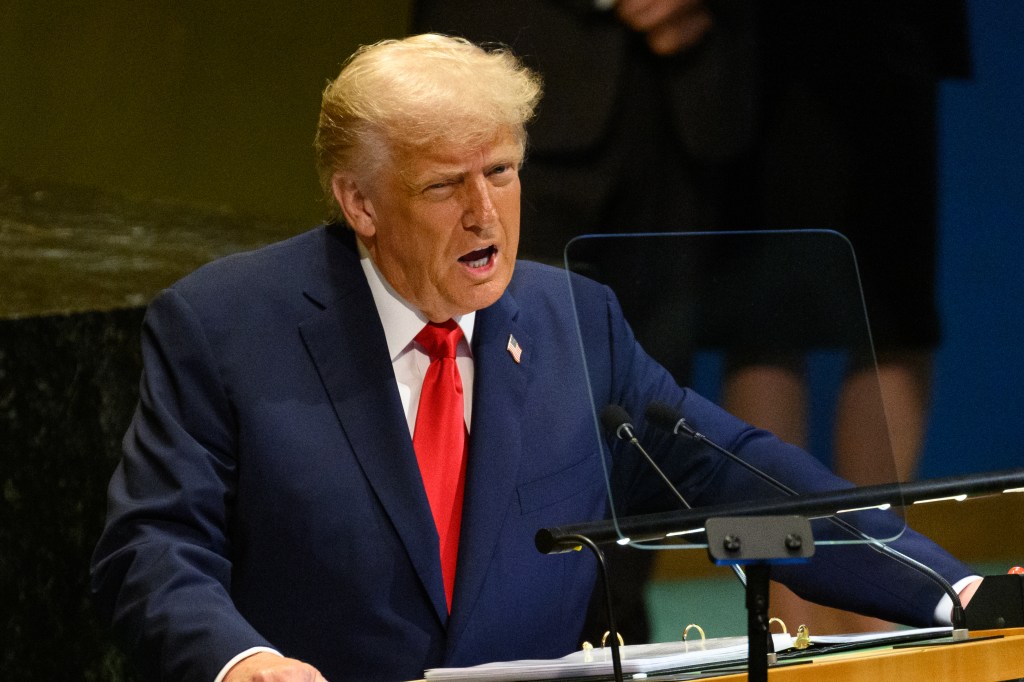
The United Nations was established in 1945, from the ashes of World War II, with an ambitious mandate to prevent future global conflicts. The U.N. Charter outlined its primary goal “to save succeeding generations from the scourge of war,” but what began as a collective security arrangement among 51 founding nations gradually evolved into a sprawling institution of 193 member states with tentacles reaching into virtually every aspect of global governance—from peacekeeping and humanitarian aid to climate change and sustainable development.
This doesn’t mean it doesn’t still help towards its original mission. “The U.N. was involved in every single one of those conflicts, either behind the scenes or in active negotiations, and certainly on the humanitarian front,” Thomas Weiss, a CUNY political science professor told TMD.
However, as Brett Schaefer—senior fellow at the American Enterprise Institute, who focuses on multilateral treaties and the United Nations—explained, the U.N. has changed over the years because it doesn’t have a superb track record at what was supposed to be its core mission. “We’ve had over 300 wars since 1945, so its efforts to save the future generations from the scourge of War certainly fall short in that regard,” he said.
Instead, it’s shifted to more humanitarian functions, where the body has a stronger record of expertise and efficacy. “It has this kind of technocratic function where it tries to provide certain services internationally,” University of Indiana Bloomington professor David Bosco told TMD, which comes in addition to “this function of being a global stage and kind of a global forum.” Bosco pointed to “the direct provision of aid in certain circumstances” as one process the U.N. has nailed down to a degree of efficiency, attributed to, in large part, “technical expertise.” That expertise allows the U.N. to respond swiftly to a variety of crises. “How do we help manage a refugee crisis? How do we get humanitarian aid to a certain affected region? How do we set up a peacekeeping force to deal with some kind of post-conflict situation?” Bosco added. “Those are the things where the organization has a lot of experience and some expertise.”
Yet even here, the organization faces criticisms. “In terms of economic development, we’ve seen quite a bit of economic development, but I would argue that the United Nations hasn’t been central to those efforts,” Schaefer said. “I would say that markets and capitalism have been the driving force behind most of the elimination of poverty around the world.”
In Bosco’s words, Trump’s language toward the U.N. may be “unprecedented,” but “you certainly had U.S. presidents challenging the U.N. and suggesting that the organization might not be effective, or might not even exist in the future.” He pointed to former President George W. Bush’s September 2002 U.N. General Assembly address, one year after the 9/11 terror attacks. While discussing the need for military action in Iraq, Bush asked, “Will the United Nations serve the purpose of its founding, or will it be irrelevant?”
In his statement to the United Nations in 2022 following Russia’s invasion of his country, Ukrainian President Volodymyr Zelensky said that “the U.N. Security Council exists and security in the world doesn’t,” in part because Russia is a permanent member, with veto powers, and thus “was unable to carry out the functions for which it was created.” In his address this week, with the war stretching into its fourth year, Zelensky underscored this point, saying that international bodies were too weak, and that “no one but ourselves can guarantee security.” He added: “What can Sudan, Somalia, Palestine, or any other peoples living in war really expect from the UN? Decades, only statements.”
Czech Republic President Petr Pavel made a similar point about Ukraine in his address this week, saying that, though “the U.N. has changed countless lives and laid the groundwork for a better and more humane world,” the security council was failing in its duties. “At a time when Russia, one of the permanent members of the U.N. Security Council, was waging a merciless war against Ukraine, the Security Council was not fulfilling its mission in relation to this aggression.”
Similarly, Israel has long complained that institutional issues led to it receiving far more criticism than countries with far more severe human rights records. In 2024 alone, UN Watch tallied that the U.N. General Assembly had passed 17 resolutions targeting Israel compared to just six against all other countries combined, and Israel remains the only country subject to a dedicated agenda item at the U.N. Human Rights Council. In 2011, then-U.S. Secretary of State Hillary Clinton denounced the body’s “structural bias against Israel”, and in 2016, former U.N. Secretary-General Ban Ki-moon acknowledged “a disproportionate volume of resolutions, reports and conferences criticizing Israel.”
Perhaps the most notable part of Trump’s address this week, though, was what he didn’t say. “Trump didn’t say a thing about what should happen to the shape of” the U.N., Weiss said. “I’m rather surprised that there was not a concrete solution to any of the laments that Trump put on the table.” There was no argument over what reforms should look like, nor were there demands to change, and most experts think a complete U.S. withdrawal from the U.N. is very unlikely—at least in the near future.
“I think that sort of existential fear had eased a little bit,” Richard Gowan, the International Crisis Group’s U.N. and multilateral diplomacy director, told TMD. “Even this administration sees the advantage of having a veto in the U.N. Security Council.”
The U.N. Security Council oversees the group’s peacekeeping operations, and, as such, is tasked with “the maintenance of international peace and security,” according to the U.N. website. The council is composed of 15 voting nations, with five permanent members —namely, the U.S., U.K., France, China, and Russia —plus 10 other countries that serve two-year terms.
However, only the five permanent members have a veto over Security Council decisions, which often results in gridlock.
“If there’s a division between the permanent five, then you’re just going to have essentially a stalemate at the Security Council,” Bosco told TMD. “Unfortunately, that’s true on several important conflicts.”
SCOTUSblog Summit
“I’ve had to just learn to tune it out,” Supreme Court Justice Amy Coney Barrett said Thursday about public criticism. “It’s the job of a judge to ignore that and not be influenced by public opinion.”
Her remarks came during the day-long SCOTUSblog On the Merits Summit hosted by The Dispatch and the Stavros Niarchos Foundation Agora Institute at Johns Hopkins University, brought “together legal scholars, corporate counsels, judges, regulators, and journalists” at the Johns Hopkins Bloomberg Center in Washington, D.C.
Along with hosts Sarah Isgur of The Dispatch and Zachary Shemtob of SCOTUSblog and moderators that included Amy Howe of SCOTUSblog, Jodi Kantor of the New York Times, and David Lat of Original Jurisdiction, several panels discussed the coming Supreme Court term, the real-world effects of Supreme Court decisions, and the “judiciary’s broader role in public life.”
Speaking with Judge Patrick Bumatay of the 9th Circuit U.S. Court of Appeals, Barrett’s keynote conversation addressed the intense public scrutiny facing the Supreme Court. She acknowledged having to tune out critics who label her both too conservative and too liberal depending on her votes, noting the protesters outside her home and the constant criticism that comes with the position.
She recalled being caught off guard by Sen. Dianne Feinstein’s 2017 comment that “the dogma lives loudly within you” during her confirmation hearing for he 7th Circuit U.S. Court of Appeals. Barrett was “surprised by it,” she said, and “a little uncomfortable to have my faith be in the spotlight.” When asked about highlights and lowlights of her Supreme Court confirmation process, Barrett was blunt: “It was pretty much all a lowlight.” Barrett also revealed that she psyched herself up during her confirmation battle by listening to the Rodney Atkins song “If You’re Going Through Hell,” and joked that she’s “in much worse shape” now that she can no longer attend her old CrossFit gym.To read more from Barrett’s conversation, read Kelsey Dallas’ report in SCOTUSblog.

